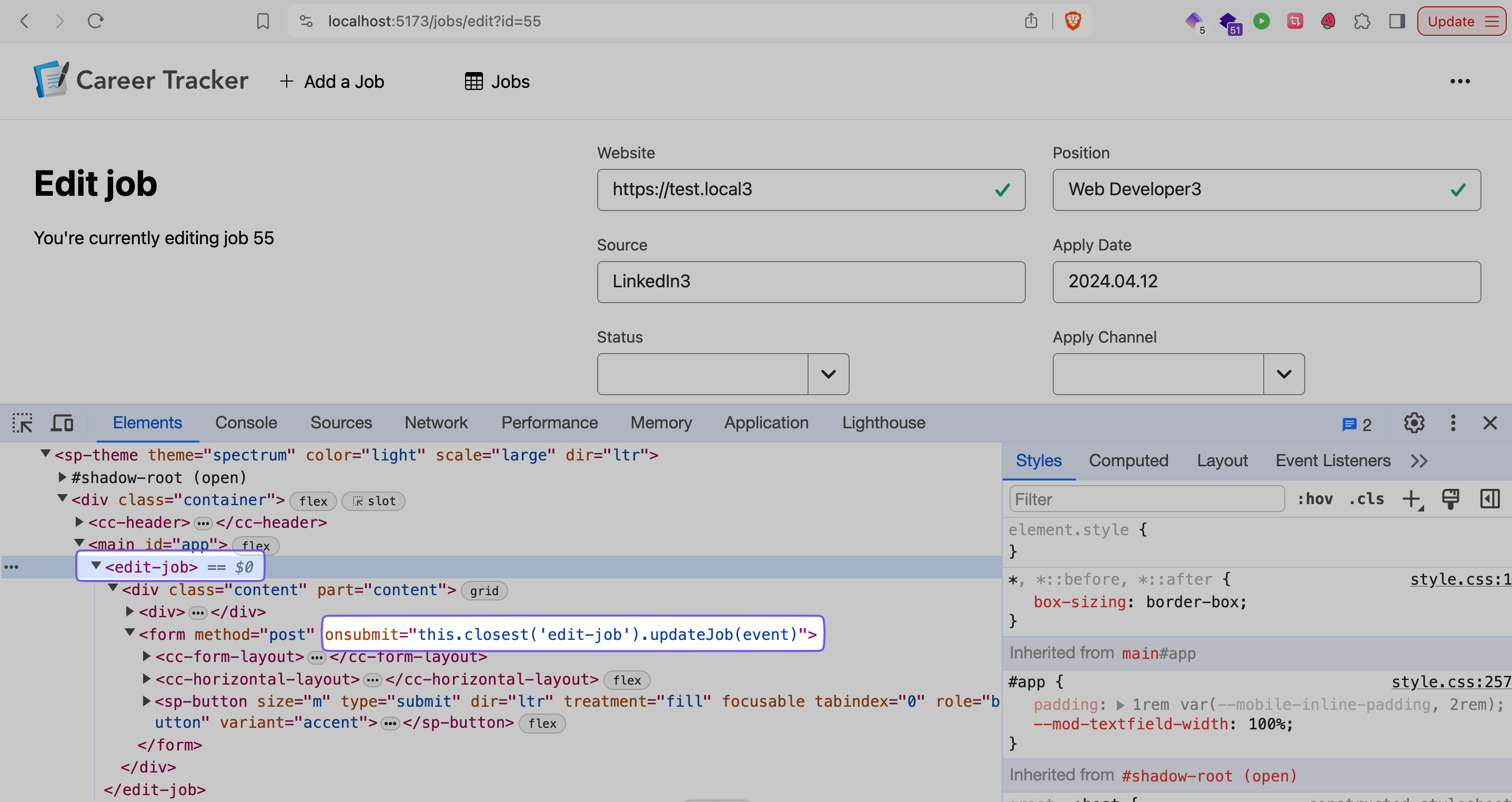Do you use inline event handlers inside Web Components?
At my previous job, I primarily worked with vanilla Web Components utilizing shadow DOM. What we generally did is to call web components internal methods declaratively like this with inline hanlders.
MediaLibrary.js
class MediaLibrary extends HTMLElement {
doSomething () => {
// ...
}
connectedCallback() {
this.shadowRoot.innerHTML = `
<-- other elements -->
<button
type="button"
onclick="this.getRootNode().host.doSomething(this)"
>
Submit
</button>
`;
}
}
In my current side project — another vanilla Web Components project, yay! — for some page components, I decided to not use shadowDOM as I’m using Trix Editor inside the page, and I need to allow Trix Editor CSS to cascade into my page.
Here’s an example of the current approach:
/pages/jobs/edit.js
export default class EditJob extends HTMLElement {
static tagName = "edit-job";
static define() {
customElements.define(EditJob.tagName, EditJob);
}
updateJob = (event) => {
// ...
};
async connectedCallback() {
const search = new URLSearchParams(location.search);
const id = search.get("id");
const job = await this.getJob(id);
this.innerHTML = `
<div class="content" part="content">
<form
method="post"
onsubmit="this.closest('${this.localName}').updateJob(event)"
>
<!-- form fields -->
</form>
</div>
`;
}
}Here’s how it looks on frontend.

What do you think? Does it have any drawbacks?